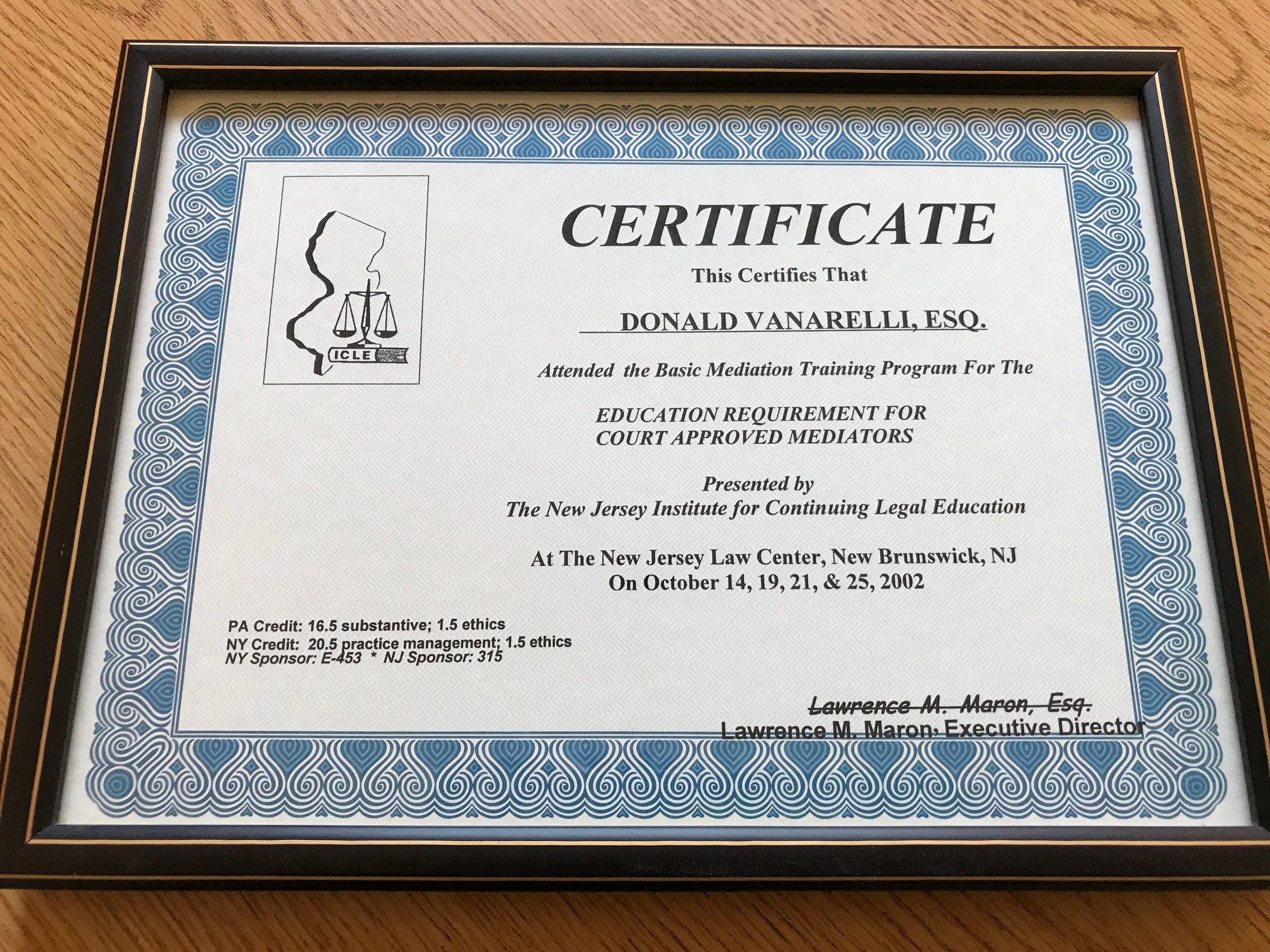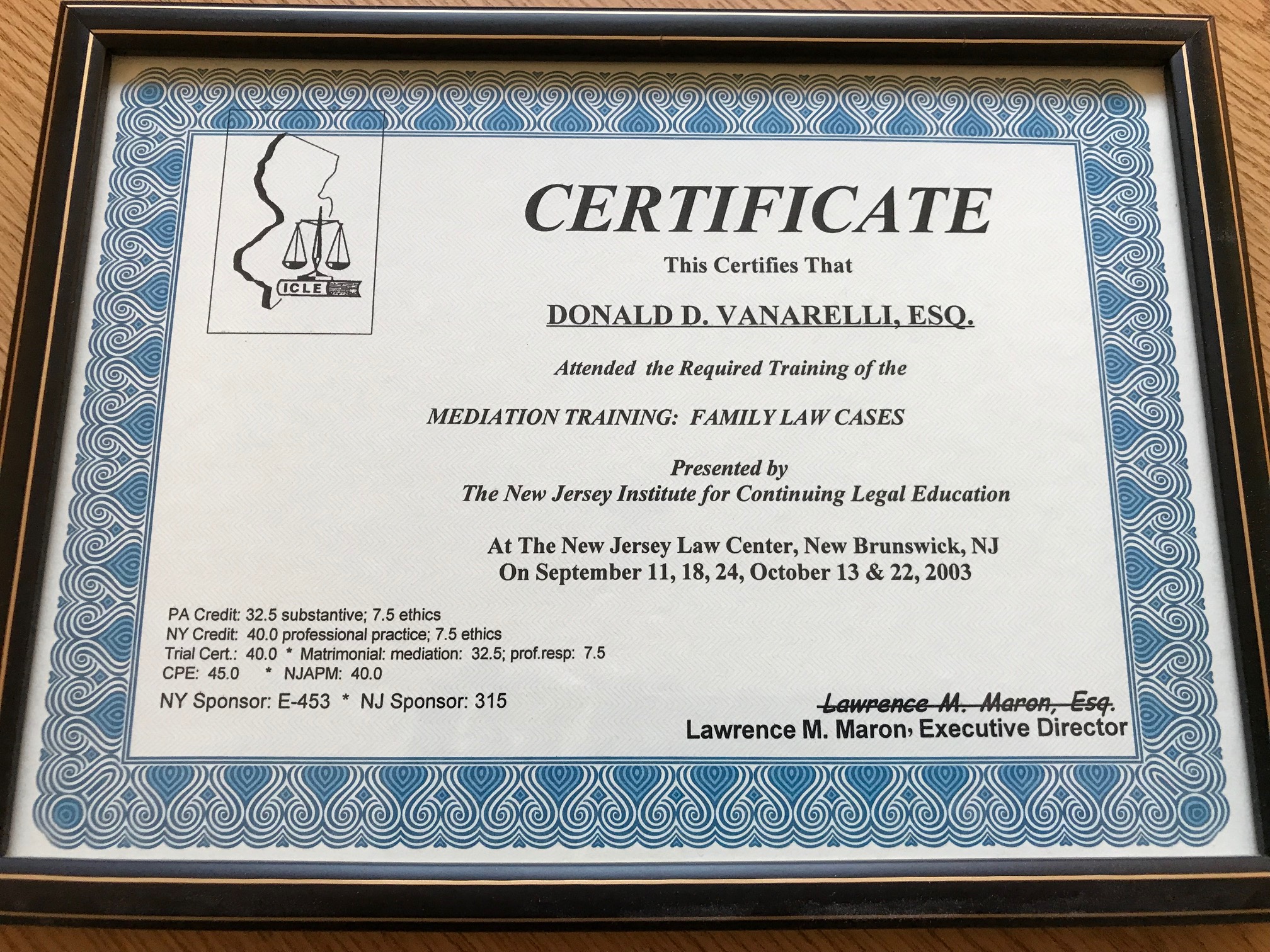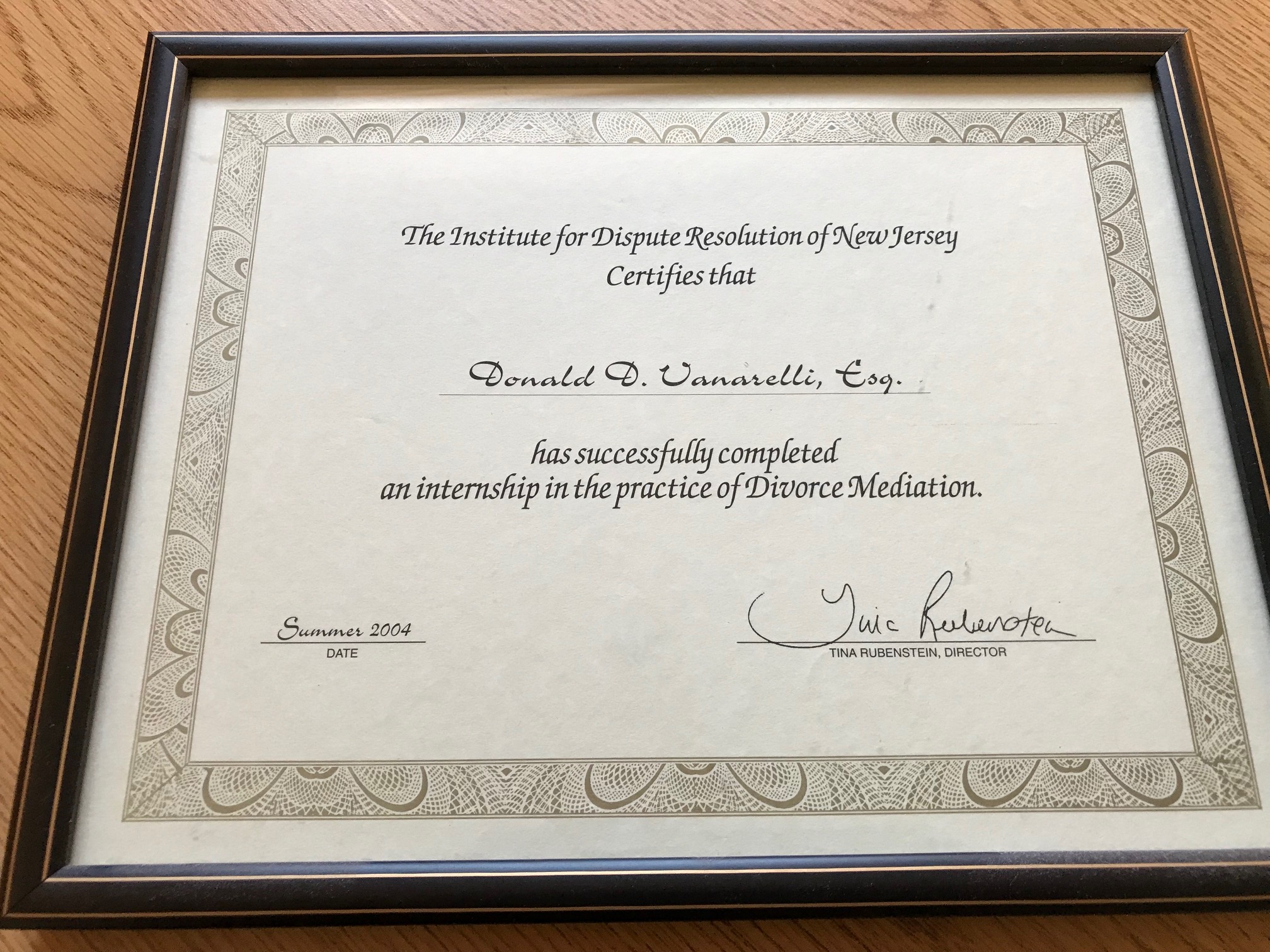Vanarelli & Li, LLC provides elder mediation services, a specialized form of mediation to help elders, the disabled and their families resolve conflict.
Mr. Vanarelli is co-founder of the Elder Mediation Center of New Jersey, a collaborative venture with other elder law attorneys and geriatric professionals whose mission is to educate professionals and private individuals on the process of Elder Mediation. For more information on the Elder Mediation process and how it can help resolve your family conflicts, contact Vanarelli & Li, LLC.
In addition, Mr. Vanarelli is an Accredited Professional Mediator (APM), a designation awarded by the New Jersey Association of Professional Mediators (NJAPM). He is also a past Director, NJAPM’s Board of Directors, and a member of NJAPM. The APM designation is awarded to those mediators who have attained a high level of education and experience in mediation. Mr. Vanarelli is also approved under the New Jersey Court Rules as a Mediator in family and divorce matters, and civil, equity and probate litigation. He is on the roster of mediators maintained by the NJ’s Administrative Office of the Courts for civil cases, and for the mediation of the economic aspects of family law cases.
Mr. Vanarelli was selected to participate on the Union County Probate Early Settlement Panel, comprised of experienced estate and elder law practitioners who assist the Court by mediating contested probate, estate and guardianship cases, as well as pending will contests. Importantly, Mr. Vanarelli completed intensive training and supervised internships in Advanced Elder Mediation and Divorce Mediation.
What is Mediation?
Mediation is the process by which a trained neutral person, called a mediator, facilitates the resolution of a dispute. Mediation is non-adversarial, with the objective of helping the parties reach a mutually acceptable agreement.
Mediation can be used to resolve any dispute. There are many advantages to using mediation to resolve disputes rather than litigation in court during which the parties become adversaries. Mediated agreements are binding on the parties and enforceable in court.
What is Elder Mediation?
Elder law disputes often possess traits that may make elder mediation a particularly attractive option for elders, the disabled and their loved ones. For example, elder disputes routinely involve members of an immediate or extended family, who wish to maintain a long-term relationship and who recognize that litigation often leads to the destruction of close family relationships. These family members see that the successful resolution of family conflict is much more complex than the “win-lose” result obtained in the litigation process. These elder law disputes often involve issues, emotions, and conflicts that may have been underlying family relationships for many years. The conflict is often “about” much more than the parties may initially understand, involving unspoken and unacknowledged beliefs and deep feelings. By helping members to recognize and acknowledge the complex background in a particular conflict, mediation offers a more creative and comprehensive way of addressing elder issues.
The Resolution of Disputes Involving the Elderly and Disable Requires Specialized Mediation Skills
Compared to the general field of mediation, elder mediation often centers on an elder or disabled family member, whose opinions may tend to be either disregarded as unrealistic or unreliable, or may be overshadowed by the opinions of well-meaning relatives. However, central to the practice of elder mediation is the recognition that the elder or disabled person, often at the center of the conflict, is the most important participant: his or her voice must be heard, and respected, if the conflict is to be resolved.
Mediation is often praised as much less expensive and less time-consuming than litigation. In addition, because these disputes often involve very private family issues, mediation offers an alternative to the public disclosure often feared by the parties in litigation.
As such, mediation is an attractive option for those who are considering the litigation of elder dispute but are seeking an alternative to a public trial, and to those families immersed in conflict who would never consider litigation but feel that there is no hope of resolution.
Examples of Issues That May Benefit from Mediation
Disputes surrounding the care of an elder or disabled person
- Will the elder or disabled person remain at home or move to a child’s home, an assisted living facility or a nursing home?
- How will the family members divide responsibility for the elder/disabled person’s care needs?
- Will those family members be reimbursed for their time providing care services and, if so, how?
- Will the family contribute financially toward the elder/disabled person’s needs and, if so, in what proportions, and will those contributions be equalized at a later date?
Independence issues
- Is it time to address the elder’s or disabled person’s continued driving?
- Can the elder/disabled person’s increased needs be addressed through a part-time or full-time home health aide, or other support services at home?
- Can the family make appropriate arrangements for an ailing parent or disabled family member so that guardianship litigation is avoided?
Trust and Estate Conflicts
- Can the family openly address the elder/disabled person’s present financial condition and potential future needs?
- Can the parent or disabled family member’s long-term care needs be resolved through the use of estate planning documents?
- Can the parent review his or her estate plan with the family in order to avoid future estate administration conflicts?
For additional information concerning Elder Mediation services, visit: https://vanarellilaw.com/dispute-resolution-services-elder-mediation/




